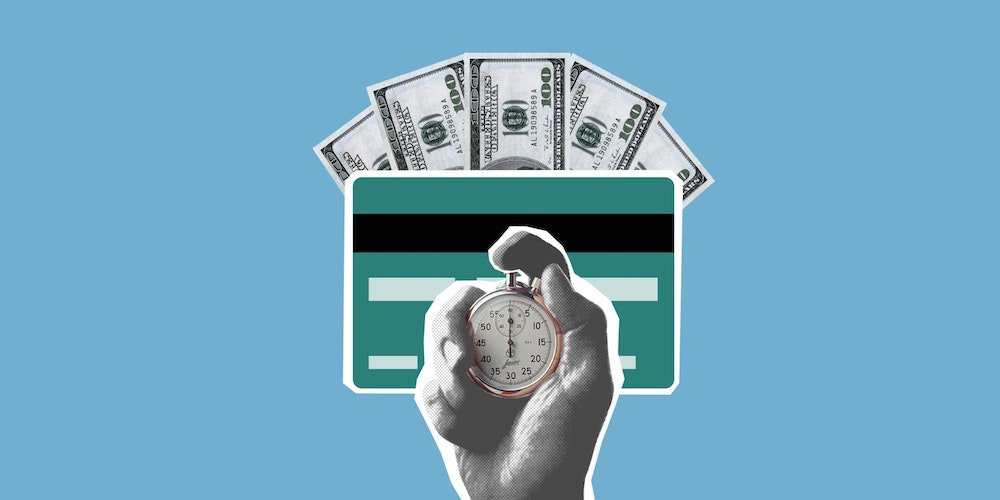Are you wondering how many savings accounts you should have? This comprehensive guide will provide you with expert insights and answers to all your questions about managing multiple savings accounts.
Introduction
Managing your finances wisely is crucial for a secure financial future. One question that often arises is, “How many savings accounts should I have?” This seemingly simple query has a more complex answer than you might think.
In this blog post, we will delve deep into the world of savings accounts, exploring the benefits, drawbacks, and strategies for managing multiple accounts. Let’s get started!
Table of Contents
The Role of Savings Accounts
Savings accounts are the foundation of financial stability. They offer a safe place to park your money while earning interest.
Whether you’re saving for an emergency fund, a vacation, or retirement, savings accounts play a pivotal role in achieving your financial goals.
Benefits of Multiple Savings Accounts
Operating multiple savings accounts come with some benefits and here are 3 of them.
1. Goal Segmentation
Having multiple savings accounts allows you to segment your financial goals. You can allocate funds for different purposes, such as a down payment on a house, a dream vacation, or unexpected medical expenses.
This segmentation helps you stay organized and focused on your objectives.
2. Enhanced Financial Control
With separate accounts, you have better control over your spending. You can allocate a fixed amount for discretionary spending while ensuring that essential expenses are covered in another account.
This prevents overspending and promotes financial discipline.
3. Higher Interest Earnings
Different banks offer varying interest rates. By having multiple accounts, you can take advantage of higher interest rates offered by different institutions. This can significantly boost your overall savings.
How Many Savings Accounts Should I Have?

In determining the number of savings accounts you should have, there is no one-size-fits-all answer. The ideal number depends on your financial goals, preferences, and lifestyle. Here are some factors to consider:
1. Financial Goals
Your financial goals should be the primary determinant. If you have specific objectives like buying a home, starting a business and building an emergency fund, it’s advisable to have separate accounts for each goal.
2. Risk Tolerance
Consider your risk tolerance. Some individuals are comfortable managing a single account, while others prefer the security of multiple accounts. Assess your comfort level and make a decision accordingly.
3. Organizational Skills
Managing multiple accounts requires organizational skills. If you are diligent in keeping track of your finances, multiple accounts can be a beneficial strategy.
However, if you find it challenging to stay organized, it may be best to stick with a single account.
4. Fees and Minimum Balances
Be aware of any fees or minimum balance requirements imposed by banks. Having numerous accounts may lead to increased fees and maintenance hassles. Ensure that the benefits outweigh these costs.
Managing Multiple Savings Accounts Effectively
Now that we’ve discussed the factors to consider when deciding how many savings accounts you should have let’s explore some strategies for managing multiple accounts effectively.
1. Naming Your Accounts
To keep things organized, consider giving each savings account a descriptive name. For example, you could label one account “Emergency Fund,” another “Vacation Fund,” and another “Home Down Payment.”
This makes it easy to identify the purpose of each account at a glance.
2. Set Up Automatic Transfers
Many banks allow you to automate transfers between accounts. You can schedule regular transfers from your primary account to your various savings accounts.
This ensures that you consistently contribute to your savings goals without the need for manual transfers.
3. Monitor Your Progress
Regularly review the balances in your savings accounts. This practice helps you track your progress toward each financial goal.
If you notice that one account is lagging behind, you can adjust your contributions accordingly.
4. Emergency Savings
While it’s essential to allocate funds for specific goals, don’t forget to maintain an emergency savings account. This account should cover unexpected expenses, such as medical bills or car repairs.
Experts recommend having at least three to six months’ worth of living expenses in your emergency fund.
5. Reevaluate Your Strategy
As your financial situation evolves, your savings goals may change. Periodically reassess your accounts and adjust your strategy as needed.
You might decide to combine accounts, open new ones, or revise your savings targets.
6. Seek Professional Advice
If you’re unsure about the best approach to managing multiple savings accounts, consider consulting a financial advisor.
They can provide personalized guidance based on your financial situation and goals.
Final Thoughts
In the world of personal finance, there is no one-size-fits-all answer to the question, “How many savings accounts should I have?” The ideal number of accounts varies from person to person and depends on individual circumstances and goals.
Ultimately, the key is to have a clear financial plan, stay disciplined in your savings habits, and regularly review and adjust your strategy as needed. By doing so, you can make the most of your savings accounts and work towards achieving your financial aspirations.
Remember, the journey to financial success begins with sound money management, and your choice of savings accounts is just one piece of the puzzle.
So, whether you opt for one savings account or several, make informed decisions, stay committed to your financial goals, and watch your savings grow over time.
Frequently Asked Questions
Q: Can I have multiple savings accounts with the same bank?
A: Yes, most banks allow you to open multiple savings accounts with them. It’s a convenient option for those who prefer to keep all their accounts under one roof.
Q: Will having multiple savings accounts affect my credit score?
A: No, savings accounts do not impact your credit score. They are not considered lines of credit. Your credit score is influenced by your credit card usage, loans, and payment history.
Q: Should I choose brick-and-mortar banks or online banks for multiple accounts?
A: Both options have their advantages. Online banks often offer higher interest rates, while traditional banks provide in-person services. Your choice depends on your preferences and priorities.
Q: How can I keep track of multiple savings accounts?
A: Use budgeting apps or spreadsheets to monitor your accounts. Most banks also offer online banking services, making it easy to track balances and transactions.
Q: Is it advisable to have a joint savings account with a partner?
A: Joint savings accounts can be beneficial for shared financial goals, such as saving for a home or vacation. However, ensure you have open communication and trust with your partner regarding finances.
Q: Are there any tax implications of having multiple savings accounts?
A: Generally, there are no tax implications for having multiple savings accounts. The interest earned on these accounts is typically subject to income tax.



